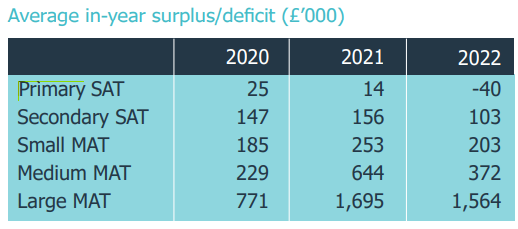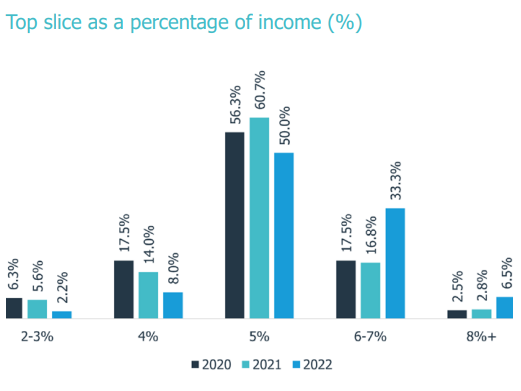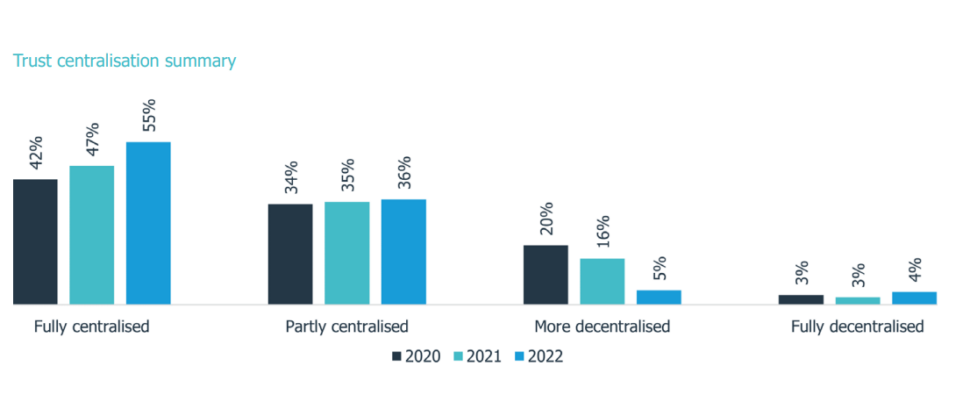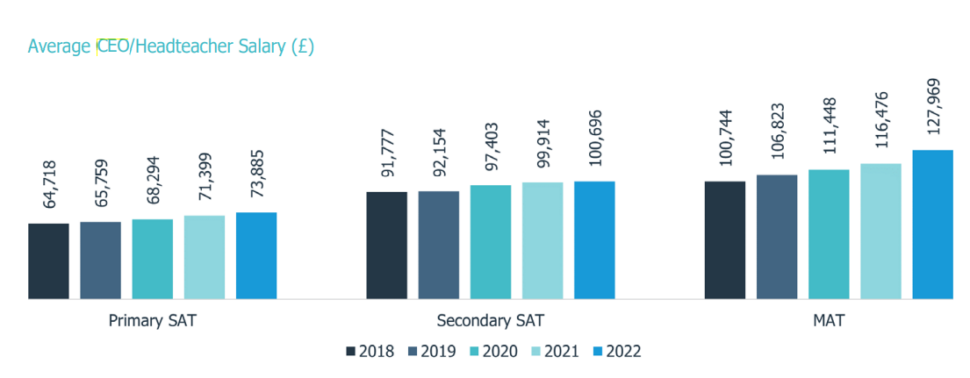Academy trusts still boast “significant surpluses”, but standalone primary schools are struggling and most leaders expect to raid their reserves to deal with soaring prices, according to a new report.
The Kreston academies group, a network of accountancy firms, has published its latest academies benchmark report, which delves into the sector’s finances based on over 320 of their clients.
The report found academy trusts are top-slicing more money from their schools’ budgets, and around one in ten has racked up reserves equivalent to over 20 per cent of their income.
But average surpluses in the sector have decreased since the highs seen last year, while standalone primary schools now have an average deficit of £40,000.
It comes as schools face an uncertain financial climate, driven largely by huge increases in energy bills and staffing costs.
The Kreston report found despite “significant surpluses” reported in the sector, per-pupil income increased by just 1 per cent in the last year, against a backdrop of inflation of over 10 per cent.
“As a result, 88 per cent of trusts are expecting future reductions in surpluses and reserves,” the report warned.
Pam Tuckett, Kreston’s chair and head of education at accountants Bishop Fleming, said the findings of the report were a “reflection of the significant political and economic uncertainty that has sent ripples” through the sector.
“While the data shows surpluses, they are much more modest than we have seen in previous years, and for the first time ever, nearly all trust leaders we spoke to have expressed serious concern over the future financial position of their trusts.”
Here’s what you need to know…
1. Fewer trusts are in deficit…
Figures for deficits and surpluses show a mixed picture for academy trusts.
Overall, the number of chains reporting a cumulative deficit has continued to drop, from 8.2 per cent in 2019 and 3.8 per cent in 2021 to 0.6 per cent last year.
However, the average surpluses enjoyed by standalone secondary academies and all types of multi-academy trust have fallen since they reached record highs last year.
2. …but smaller schools are suffering
Among primary single-academy trusts, 47 per cent reported in-year deficits in 2021-22.
Their average deficit was £40,000, compared to a £103,000 surplus for a secondary SAT and £1.5 million for a large MAT.

Kreston said this was due to a “small number” of primary SATs “with very large deficits, resulting from capital and maintenance expenditure” that has dragged down the overall average.
Primary SATs have also seen the biggest jump in per pupil heating and lighting costs, rising by £26 to £84 in 2022. This is compared to a £16 jump at secondary SATs and £11 at MATs.
There has also been a “staggering increase” in supply costs for primary SATs – up 76 per cent in a year. Primary school pupil rolls are also falling.
The economic situation is also affecting trusts in other ways.
Kreston said clients were struggling to “fulfill their plans” such as filling staff posts, difficulties in finding contractors to complete projects and some issues in buying products and supplies.
3. 1 in 10 trusts has 20% reserves…
The National Audit Office and the Parliamentary public accounts committee have said government should provide information on trusts holding free reserves of more than 20 per cent of their income.
This would increase scrutiny of their finances, they have argued.
But Kreston’s report found 11 per cent of trusts are over that threshold. If extrapolated, it would mean over 1,000 trusts with reserves of over a fifth of the value of their income.
Kreston said trusts had had “relative financial success” in building up reserves “to protect them from a period of great uncertainty”.
Although government announced more money for schools next year, “very few trusts will feel that the future is anything other than hugely uncertain – and although they have been predicting falling reserves for a number of years this time they really mean it”.
4. …but trusts are taking more from school budgets
Academy trusts are allowed to “top-slice” funding from the budgets of their schools to run central services.
Kreston’s report shows a third of trusts now charge 6 to 7 per cent of income when top slicing – a sharp rise from 16.8 per cent in 2021 and 17.5 per cent in 2020.
And 6.5 per cent now charge a top slice of more than 8 per cent, up from 2.5 per cent of trusts in 2020 and 2.8 per cent in 2021. The most common top-slice is still around 5 per cent.

Kreston said GAG (general annual grant) pooling is also becoming more attractive to trusts, with 23 per cent of its MAT clients doing this, compared to 14 per cent previously.
GAG pooling sees funding for all schools in a MAT centrally collected and allocated according to need.
4. More trusts centralise finances
More than half of trusts (55 per cent) now report that their operations are fully centralised, according to Kreston’s data. This is up from 42 per cent in 2020. Only four per cent of MATs said they were fully decentralised.
Nearly all (92 per cent) of large MATS are centralised, compared to 43 per cent of small trusts.

Kreston said with “increasing budgetary pressures” it is likely MATs “will continue to seek to maximise efficiencies by increasing centralisation of the finance function and other support services”.
5. Executive pay has risen by 10%
Although per-pupil funding has not kept up with inflation, pay for academy leaders seems to have fared better.
The average MAT chief executive officer or headteacher is now paid £127,969 – a 10 per cent hike from £116,476 the year before.

However, changes in pay varied based on the size of trusts, and average CEO pay in large MATs actually fell by 2.5 per cent last year.
Kreston said this could be because of “a lot of fluidity in the sector”, and “less experienced” leaders could also be moving into the roles.
It comes as 70 per cent of MATs who responded to Kreston’s survey expected to grow this year, up from 65 per cent last year.
Ninety-two per cent expect to have grown by the end of 2023-24 school year. Over 5 per cent expected to grow by seven schools in this year and next.
















Your thoughts